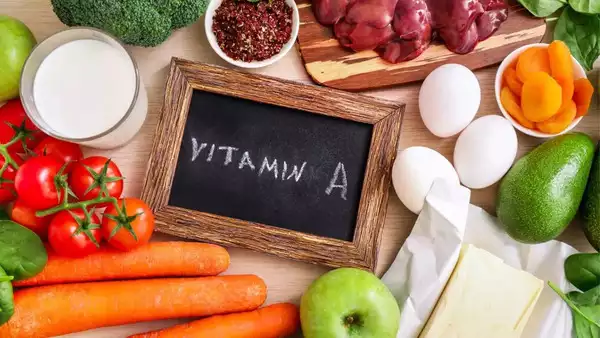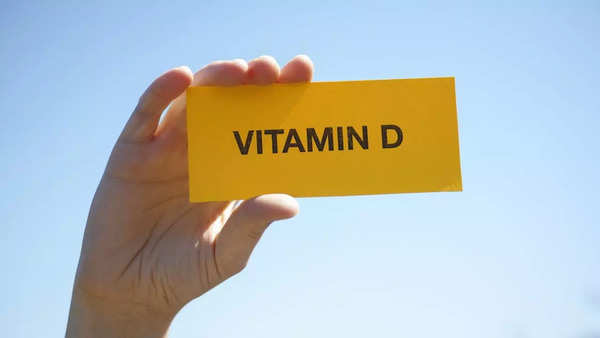Your bones can grow weak as you age and without adequate nourishment and stores of vitamins and minerals, they may quickly turn brittle which can cause chronic pain, issues in movements, weak teeth, and brittle nails. Robust bone health is also crucial for a good posture. Achieving strong bones and teeth isn’t that complicated if you consume a balanced diet and include sufficient vitamins in your everyday meals.
Here’s a list of vitamins that can ensure strong bone and teeth:
Vitamin A

Vitamin A is crucial for maintaining oral health as it helps in the formation of keratin, an important protein that teeth enamel is made of. Sensitive teeth or gums can indicate Vitamin A deficiency and a sign that you need to increase intake of this nutrient. Vitamin A is also important for healthy gum tissue and not adding a sufficient amount of it could lead to inflamed, irritated, or swollen gum. It can also lead to gum bleeding while brushing on flossing teeth.
Ways to add Vitamin A to the diet
Carrot: Abundant in the winter season, raw or cooked carrot can be added to a variety of sweet and savoury dishes be it salad, curries, or puddings.
Sweet potato: Another rich source of Vitamin A, it can be boiled or baked, or turned into a stir-fry for a delectable treat.
Kale: The leafy green vegetable, which is a storehouse of Vitamin A and a range of micronutrients can be added in salads or in curries, and soups. Kale chips are also gaining popularity.
Watermelon: Sweet, juicy and delicious, watermelon offers a burst of nutrients apart from a generous dose of Vitamin A. It is best enjoyed as a whole fruit, but you can also consume its juice, add it in salad or frozen treats.
Vitamin D

Vitamin D is regarded as important for the teeth health as it helps in calcium absorption and strengthening the bones. According to a study published in the journal Nutrients, Vitamin D plays an important role in bone and tooth mineralization. When Vitamin D levels are low, it can lead to the ‘rachitic tooth’, which means your teeth are highly susceptible to fracture and decay.
Ways to add Vitamin D to the diet
Oily fish: One of the richest sources of Vitamin D, oily fish like salmon, sardines, herring and mackerel can be added to the daily diet for increasing Vitamin D intake, which can go a long way in improving your dental health. Oily fish can be grilled, barbecued, roasted or baked.
Egg yolks: A brilliant source of Vitamin D, egg yolks can be used in a variety of ways. Poaching, soft boiling, or scrambling them could help you reap benefits of vitamins like A, D, E, and choline.
Fortified foods: Many foods are fortified with Vitamin D like cereals, orange juice, fortified milk and cheese which can be added to the diet.
Vitamin C
Vitamin C plays a significant role in maintaining your teeth as well as gum health. As per a study published in Frontiers in Nutrition, Vitamin C contributes to collagen synthesis, which is an important protein for providing tooth structure, support, and maintenance. Vitamin C also reduces the risk of developing secondary caries in children. It is also an excellent vitamin for gums. It helps keep the connective tissues in the gums healthy and strong which can prevent gum bleeding and disease.
Ways to add Vitamin C to the diet
Bell peppers: An amazing source of Vitamin C, bell peppers can be eaten raw in salad or sauteed, grilled, roasted, depending on your preference.
Oranges: Super-rich in Vitamin C, these fruits are best eaten whole. They can be added in fruit salads or consumed in the form of juice, breakfast rolls, or desserts. However, eating them sweet can be harmful for your teeth.
Strawberries: Raw strawberries are the best for your teeth health and any added sugar must be avoided in the recipes. You can eat them as a whole fruit, add them to smoothies and other baked goods.
Vitamin K
Vitamin K1 and K2, both can contribute significantly in your dental health; the former is found in green leafy vegetables, while the latter – further divided into subgroups like MK4 and MK13, is mostly found in dairy products, pork, poultry and fermented foods. Vitamin K helps active proteins that regulate bone mineralization and can assist in the development and repair of teeth and bones. When it comes to bone health include dental health, Vitamin K2 especially has a protective effect on bones.
Ways to add Vitamin K to the diet
Broccoli (Vitamin K1): Green leafy vegetables are abundant in Vitamin K and broccoli is no exception. It can be added in soups, salads or stir-fries.
Radish (Vitamin K1): Radish is rich in Vitamin K1 and depending on your taste preference you can have them raw for a crunchy bite or cooked, roasted or buttered for a delectable treat.
Dairy products (Vitamin K2): Be it milk, cheese, or yoghurt you can increase your Vitamin K2 intake and improve your dental health by consuming dairy products.
Vitamin B 12
Vitamin B12 is an important nutrient for having strong teeth as it helps your body absorb calcium, an essential mineral for your teeth and bones. Vitamin B12 deficiency can cause tooth loss due to weakened bones and gums. According to a study published in International Journal of Clinical Pediatric Dentistry, Vitamin B12 deficiency may cause an increase in the prevalence of dental caries and gingival diseases in children.
Ways to add Vitamin B12 to the diet
Eggs: Eating boiled eggs in breakfast could help improve your Vitamin B12 levels. Also, egg yolks may have higher levels of vitamin B12 than egg whites, so you must add them to your diet.
Greek yoghurt: Milk products like yogurt have the highest absorption of vitamin B12, between 51% and 79%. According to USDA data, a 156-gram container of Greek yogurt offers about 45 percent of your daily need for B12.
Skincare for stress and fatigue: 5 ways to revive your tired skin

